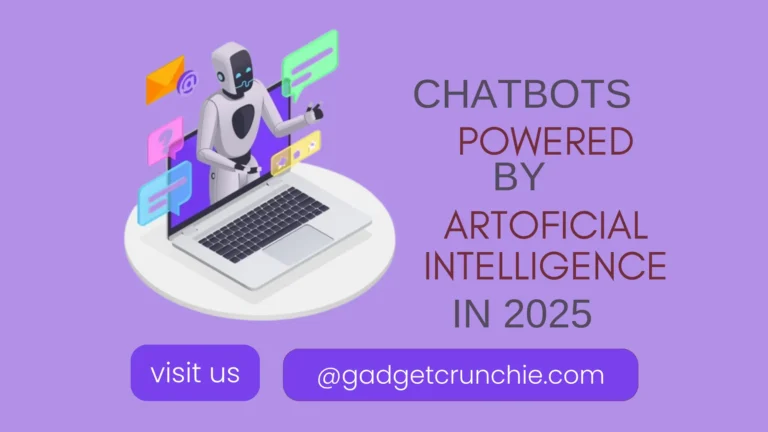Using an AI chatbot or voice
Using an AI chatbot or voice
Home
- Single Blog

Using an AI chatbot or voice assistant
Integrating artificial intelligence (AI) into chatbots and voice assistants has revolutionized the way businesses interact with customers and users. AI-powered chatbots and voice assistants have become essential tools for businesses looking to streamline customer service and improve user engagement. By leveraging AI technology, companies can offer personalized and efficient customer support, leading to higher satisfaction rates and increased loyalty. These AI-powered technologies offer a seamless and efficient way to provide information, assist with tasks, and enhance user experiences. This article explores the evolution, benefits, challenges, and best practices associated with using AI chatbots and voice assistants.
1. Introduction to Using An AI Chatbots Or Voice Assistants
Definition and Functionality
AI chatbots and voice assistants are like your personal digital sidekicks – they use artificial intelligence to understand and respond to human queries and commands. They can help with anything from ordering pizza to setting reminders, making your life a little easier.
Evolution and Adoption of AI Chatbots and Voice Assistants
From the early days of clunky chatbots to the sleek voice assistants we have today, AI technology has come a long way. With the rise of smart speakers and smartphones, more and more people are embracing these digital helpers in their daily routines.
“Leveraging an AI chatbot or voice assistant can be like having a personal assistant in your pocket, always ready to help streamline your tasks, answer questions, or even spark creativity. These tools make daily life more efficient and enjoyable.”
Zubair Abid
The Rise of Bitcoin in Online Transactions
Just like avocado toast became a millennial staple, Bitcoin has become the go-to choice for many online transactions. Its popularity has skyrocketed in recent years, thanks to its convenience, security, and global reach. From buying a pizza to booking flights, Bitcoin is making its mark in the online shopping world.
2. Benefits of Using AI Chatbots and Voice Assistants
Enhanced Customer Experience
AI chatbots and voice assistants can provide instant and personalized assistance to customers, enhancing their experience with a brand or service. No more waiting on hold – just quick, efficient help at your fingertips (or voice command).
Increased Efficiency and Cost Savings
Businesses can benefit from AI chatbots and voice assistants too. By automating repetitive tasks and providing 24/7 support, companies can increase efficiency and save on manpower costs. Plus, who doesn’t love a helpful AI colleague that never complains about overtime?
3. Implementation of AI Chatbots and Voice Assistants
Choosing the Right Platform
When implementing AI chatbots or voice assistants, it’s crucial to choose the right platform that fits your needs. Whether you opt for a ready-made solution or build your own, consider factors like scalability, customization options, and integration capabilities.
Integration with Existing Systems
For a seamless user experience, it’s essential to integrate AI chatbots and voice assistants with your existing systems. Whether it’s syncing up with your CRM software or connecting to your e-commerce platform, smooth integration ensures everything runs like a well-oiled machine.
“Don’t miss out! Check out my latest YouTube video for in-depth insights and exciting content. Click here Gadget Crunchie to watch now!”
Gadget Crunchie
4. Best Practices for Developing AI Chatbot and Voice Assistant Solutions
User-Centric Design Principles
When developing AI chatbots and voice assistants, put the user first. Design intuitive interfaces, use natural language processing for smoother interactions, and consider user feedback for continuous improvement. After all, happy users make for successful AI companions.
Data Privacy and Security Measures
With great AI power comes great responsibility. Protect user data by implementing robust data privacy and security measures. Encrypt sensitive information, adhere to data protection regulations, and regularly update security protocols to keep hackers at bay. After all, we wouldn’t want any shady characters eavesdropping on our digital conversations, would we?
5. Challenges and Limitations of AI Chatbots and Voice Assistants
Accuracy and Reliability Issues
AI chatbots and voice assistants might occasionally mix up your grocery list with your favorite song lyrics. Hey, we all have our off days, right? But these mix-ups can be annoying and frustrating, leading to accuracy and reliability issues that challenge the effectiveness of these technologies.
Overcoming Language and Cultural Barriers
Sometimes AI chatbots and voice assistants struggle with understanding different accents or cultural nuances. It’s like explaining sarcasm to a robot – not always successful. Bridging these language and cultural gaps is essential for ensuring that these technologies can effectively communicate with diverse users.
6. Ethical Considerations in AI Chatbot and Voice Assistant Development
Transparency and Accountability
Just like your best friend should always be honest with you, AI chatbots and voice assistants need to be transparent about their capabilities and limitations. Users deserve to know when they’re talking to a virtual assistant rather than a human, to avoid any confusion or misunderstandings.
Respecting User Privacy and Consent
Privacy is important, even in the digital world. AI chatbots and voice assistants should prioritize user privacy and obtain consent before storing or sharing any personal information. After all, no one wants their embarrassing karaoke sessions to be leaked to the world.
7. Future Trends in AI Chatbot and Voice Assistant Technology
Advancements in Natural Language Processing
As AI technology evolves, we can expect improvements in natural language processing. This means chatbots and voice assistants will become even better at understanding complex human language, making conversations feel more natural and effortless.
Personalization and Contextual Understanding
Imagine a chatbot that knows you better than your favorite barista – now that’s personalization! Future trends in AI chatbot and voice assistant technology will focus on understanding contextual cues and personal preferences, providing users with tailored responses and recommendations. It’s like having a virtual assistant who truly gets you.
Conclusion
As AI continues to advance and innovate, the potential for chatbots and voice assistants to transform various industries and improve user interactions is limitless. By understanding the benefits, challenges, and best practices outlined in this article, businesses can harness the power of AI to enhance customer experiences and drive operational efficiency. With a focus on ethical considerations and an eye on future trends, the future of AI chatbots and voice assistants holds exciting possibilities for both businesses and consumers alike.
FAQS
1. How do AI chatbots differ from traditional chatbots?
AI chatbots differ from traditional chatbots in that they are powered by artificial intelligence, allowing them to learn and adapt to user interactions over time. This enables AI chatbots to provide more personalized and efficient responses, leading to a more seamless user experience. When implementing AI chatbots and voice assistants in a business setting, key considerations include data privacy and security, training the AI to accurately represent the brand’s voice, and ensuring seamless integration with existing systems and processes.
When implementing AI chatbots and voice assistants in a business setting, it is crucial to also consider the user experience and customer satisfaction. Ensuring that the AI technology is user-friendly and provides valuable assistance to customers can greatly impact the success of its implementation. Additionally, businesses should also think about scalability and future growth when integrating AI technology into their operations.
3. How can businesses address privacy concerns related to using AI chatbots and voice assistants?
When it comes to addressing privacy concerns related to using AI chatbots and voice assistants, businesses can implement strict data protection measures, such as encryption and secure storage protocols. They can also provide clear and transparent privacy policies to users, outlining how their data will be collected, stored, and used. Additionally, businesses can regularly update their AI technology to ensure it complies with the latest privacy regulations and standard.







